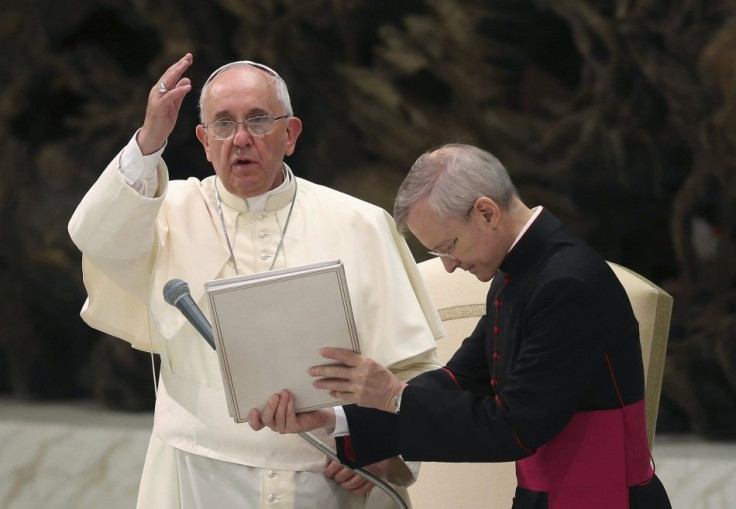Hero Peacekeepers Are Pope Francis’ Protectors In Philippine Visit

The Filipino peacekeepers who have just returned from their stint in Golan Heights have been assigned as the protectors of Pope Francis in his highly anticipated January 2015 visit to the Philippines.
Admitting protecting the spiritual leader of the 1.3-billion strong Roman Catholic church is different from their training and what they went through Golan Heights, Lt Col Ted Damusmog, contingent commander, said his troops are nevertheless "excited" over the idea. "Most of them, most probably, it will be the first time to see personally the Pope," he said in a press conference.
Apart from the Philippines, Pope Francis is also scheduled to visit Sri Lanka in January. He had visited South Korea, the Middle East and most recently, Albania. He is set to visit Turkey in November.
Damusmog said they are aware of the threats against the life and security of Pope Francis, who had implicated himself recently in the war against ISIS. To prepare for his arrival, Damusmog said they have reorganised their units and started training. He will not disclose the specifics of their training.
Protecting Pope Francis in his January Philippine visit is definitely a far cry from what they are used to doing, which is combat missions. Damusmog said they are also undergoing conditioning exercises to better equip them on how to protect the pope and respond to emergencies should the need arises.
The 330 Filipino peacekeepers figured in headlines back home when Syrian rebels suddenly turned up at the supposed safe camps dividing Israel and Syria. The rebels demanded the soldiers turn over their firearms, which the contingent refused. A standoff and 7-hour firefight ensued. The peacekeepers managed to escape from the area while the rebels slept.
Fortunately, no casualties happened on the contingent of Filipino peacekeepers. The dilemma that befell the Filipino peacekeepers irked Philippine President Benigno Aquino who said on Wednesday the country has suspended sending troops to the Golan Heights until the United Nations completes its investigation into the matter.
"I got a report that you had been asked to lay down your arms and we could not agree to that," local paper Inquirer quoted Mr Aquino telling the soldiers. "Had you been taken hostage, it would have complicated the problem and our capability to send a rescue force is really limited."




















